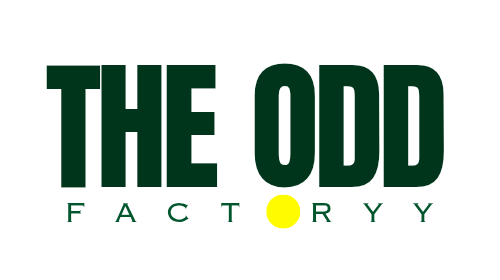Introduction
In recent years, ethical fashion has emerged as a powerful movement within the fashion industry, reshaping the way we perceive clothing and the impact it has on the world. In this blog, we will delve deep into the concept of ethical fashion, its principles, and why it\’s crucial for the fashion industry\’s future. We\’ll also address the difference between ethical fashion and fast fashion, the reasons behind the seemingly high costs of sustainable fashion, and ways to support ethical fashion. Let\’s embark on this journey to understand the importance of ethical clothing and sustainable fashion.
What is Ethical Fashion?
Ethical fashion, also known as ethically made clothing, ethical clothing, or sustainable clothing, is a conscious approach to clothing production and consumption. It involves ensuring that the entire lifecycle of a garment, from its creation to its disposal, aligns with ethical and sustainable principles. Ethical fashion prioritizes the well-being of workers, the environment, and animal welfare throughout the production process.
Importance of Ethical Fashion in the Fashion Industry
The fashion industry has been criticized for its negative impact on the environment and workers for decades. Ethical fashion seeks to address these issues by promoting practices that are environmentally friendly and socially responsible.
- Environmental Impact: Ethical fashion places a significant emphasis on using sustainable materials that are environmentally friendly. By reducing the reliance on harmful chemicals and promoting eco-friendly fabrics, the industry aims to minimize its carbon footprint.
- Fair Labor Practices: Ethical clothing manufacturers, whether they are located in New York, Germany, Dubai, Riyadh, or Kuwait, prioritize fair labor practices. This means ensuring sweatshop-free production, offering fair wages, and maintaining safe working conditions for employees.
Why is Sustainable Fashion So Expensive?
One common misconception about ethical fashion is that it is prohibitively expensive. While it\’s true that sustainable clothing can sometimes come with a higher price tag, there are valid reasons for this.
- Quality and Durability: Ethically made clothing often uses high-quality materials and craftsmanship. These items tend to last longer, making them a more economical choice in the long run.
- Fair Wages: Paying fair wages to workers in ethical clothing production facilities can increase production costs. However, it\’s a fundamental aspect of ethical fashion, ensuring that workers receive just compensation for their labor.
- Sustainable Materials: Eco-friendly fabrics and materials used in ethical fashion can be more expensive to produce and source, driving up the overall cost.
- Smaller Production Runs: Ethical clothing manufacturers may produce smaller quantities of clothing to reduce waste and minimize their environmental impact. This limited production can lead to higher prices per unit.
What is the Difference Between Ethical Fashion and Fast Fashion?
To truly appreciate ethical fashion, it\’s essential to understand how it differs from its counterpart: fast fashion.
Fast fashion is characterized by its rapid production cycles, low prices, and often poor labor conditions. It prioritizes mass production and quick turnover of trends, resulting in a high environmental and social cost. In contrast:
Ethical Fashion:
- Prioritizes quality over quantity.
- Supports fair labor practices and safe working conditions.
- Uses sustainable and eco-friendly materials.
- Promotes transparency in the supply chain.
- Focuses on long-lasting, timeless designs.
Fast Fashion:
- Emphasizes fast production and low prices.
- Often relies on cheap labor and unsafe working conditions.
- Uses low-quality materials that may be harmful to the environment.
- Lacks transparency in supply chains.
- Encourages frequent purchasing and trend-driven consumer behavior.
Read More : The Complete Guide to Sustainable Clothing Care and Lifestyle
How to Support Ethical Fashion
Supporting ethical fashion is not just about buying ethically made clothing; it\’s about making informed choices and advocating for change. Here are some ways you can support ethical fashion:
- Educate Yourself: Learn about the principles of ethical fashion and the brands that adhere to them. Look for certifications like Fair Trade, GOTS (Global Organic Textile Standard), or B Corp when shopping.
- Choose Quality Over Quantity: Invest in timeless, high-quality pieces that will last longer and reduce the need for frequent replacements.
- Support Ethical Brands: Choose to shop from brands and clothing manufacturers that prioritize ethical and sustainable practices. Research their supply chain transparency and commitment to fair labor and eco-friendly materials.
- Second-Hand Shopping: Consider thrift stores, vintage shops, or online second-hand marketplaces to give pre-loved clothing a new life and reduce waste.
- Promote Awareness: Share your knowledge about ethical fashion with friends and family. Advocate for change by raising awareness about the importance of ethical clothing.
The Role of Sustainable Fashion Consultants and Ethical Fashion Consultancy Services
Sustainable clothing manufacturers in Dubai and Riyadh are increasingly recognizing the importance of ethical and sustainable practices. They rely on sustainable fashion consultants to facilitate this transition. These consultants provide invaluable expertise on eco-friendly materials, fair labor practices, and enhancing supply chain transparency. Ethical fashion consultancy services assist these manufacturers in aligning their operations with industry standards and meeting the growing demands of socially and environmentally conscious consumers. With the guidance of such experts, clothing manufacturers in Dubai and Riyadh can navigate the complexities of sustainable fashion and contribute to a more responsible and ethical global fashion industry.
The Principles of Ethical Fashion
Now that we\’ve explored the concept of ethical fashion, let\’s break down its core principles:
- Fair Labor Practices
- Sweatshop-Free Production: Sustainable clothing manufacturers in Germany prioritize sweatshop-free production, ensuring fair wages and safe working conditions. Their commitment to ethical labor practices aligns with their eco-friendly approach, setting a strong example in the fashion industry.
- Fair Wages and Working Conditions: Workers in ethical fashion production are paid fair wages, and their working conditions prioritize safety and well-being.
- Sustainable Materials
- Use of Eco-friendly Fabrics: Ethical fashion embraces eco-friendly materials such as organic cotton, Tencel, hemp, and recycled fibers. These materials are less harmful to the environment during production and disposal.
- Reduction of Environmental Impact: Brands committed to ethical fashion take steps to reduce their environmental impact, including minimizing water usage, energy consumption, and waste generation.
- Animal Welfare
- Cruelty-Free Practices: Ethical fashion promotes cruelty-free practices by avoiding the use of fur, leather, or any materials obtained through animal harm.
- Alternatives to Animal Products: Brands in the ethical fashion industry explore innovative alternatives to animal-derived materials, such as faux leather made from sustainable sources.
Conclusion
Ethical fashion is more than just a trend; it\’s a movement towards a more sustainable and responsible fashion industry. By choosing ethically made clothing and supporting brands that prioritize fair labor practices, sustainable materials, and animal welfare, you contribute to positive change. Together, we can create a fashion industry that respects both the planet and the people involved in its production. Let\’s continue to advocate for ethical fashion and make a difference in the world of clothing and style.



